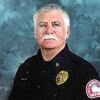Thirty years ago, the first edition of IFSTA’s “Firefighting Essentials” was published. More like a pamphlet than a book, this was the beginning of firefighter training as we now know it.
Fire was a triangle, and first aid was just that. Theory was at a minimum, and every attempt to standardized methodology was met with a general chapter and some how-to pictures.
Now in its sixth edition, Essentials is hundreds of pages thick with in-depth analysis and precise mechanics. From the fire tetrahedron to weapons of mass destruction, firefighters are introduced to a world of exacting discipline and learned behavior far greater than the collective knowledge of previous generations.
“Putting the wet stuff on the red stuff” has been replaced by discussions on mass and energy and their conversion principles such that a quantum physicist would be proud.
A sense of awe
What we expect of ourselves as officers is directly proportional to the growing technology of a complex and ever-changing world combined with the rapidly expanding universe of public access. Social media, 24-hour new outlets, and a right-to-know culture, all serve to increase the stress surrounding an already difficult task such as removing patients from a vehicle or extinguishing a fire.
Add to this, areas of required specialization such as hazmat, heavy rescue, and wildland firefighting and this combination of constant scrutiny and expected expertise creates a sense of overwhelming overload and the real possibility of response paralysis.
You are no longer a member of your local fire department out on a call, but a social symbol of a larger-than-life band of universal care givers somewhat akin to super heroes. For any officer or firefighter, such a realization can be awe-inspiring and devastating at the same time.
So how do we handle this perpetual increase in educational demand coupled with the constant public scrutiny associated with today’s information/entertainment media?
What’s new?
For starters, you need to stay current. Despite certificates, years on the job and a solid reputation, you and your crews need to keep up with the latest trends, tools, and techniques.
Vehicles can have over 10 air bags between firefighter and patient. Hybrids store enough electrical energy to kill an unsuspecting responder, not to mention creating ignition temperatures far beyond ordinary combustion parameters. What about all the new buses, light rail services, and natural- and compressed-gas vehicles?
Read all you can in and out of the fire service, whether it is a training bulletin or a building supply catalogue. Construction materials and assembly techniques have changed dramatically in the last generation, allowing for faster and lighter builds.
No longer can you count on solid wood burning at a predictable rate. Today, pressboard stairs, aluminum-stud walls, and glued roof joists all pose an immediate threat to initial attack crews.
Knowledge triage
Be realistic about what you need to know. Study what is in your area and what has changed since you came on duty. If there is light industry, what products do they produce and what are the immediate hazards associated with such manufacturing?
Analyze your population concentrations and exactly what challenges need to be addressed in responding, staging, and mitigating the incident. Do you live in a community of high rises or bugalows, farmland or concrete? Where are the zoning changes and who has remodeled or restructured their environments?
Use inspection time for pre-incident planning not only the building but your complete response capability. If you do not participate in company inspections, get out of the station and take a look at the community you are charged to protect.
Talk to residents, shopkeepers and officials. Find out what is happening in your backyard right now. A car dealer might have the latest in hybrid specifications. A local magistrate may hint at a new shopping mall being considered by the council.
Blocking and tackling
As a line officer, it may be time to renew your commitment to training and practice. Take a rookie under your wing as an excuse to brush up on the basics.
Stop and really look at the tools that are being cleaned and put back into service after a call. Can they be used more effectively? Do they need updating or refurbishing?
Talk to your firefighters and fire them up. Study, rehearse and practice what you know is important to any fireground evolution. If you tie off three tools in two and a half minutes, you know the next time you hoist; it will take only two minutes.
Practice may not make perfect, but it will make you faster. Pass this axiom on to your crew. Additionally, repetitive training allows you to think beyond the evolution. Competent completion of hands-on tasks allows for peripheral information to be assimilated — information that could affect tactics and ultimately save lives.
Instant message
As for social media, its mandate is simply because of its immediacy and insatiable demand for all things new and shiny. From the universal memorialization of the events of 9/11 to the uncontrolled and unedited versions of our profession seen daily on small screens and in electronic print, we cannot regulate information; we can influence perception.
We can do so by being ever vigilant to our profession and in our personal lives, in spite of the seemingly insurmountable velocity of our time. We can do so by continuing to learn — by staying current.
While we must respect the power of social media, the fire service’s true strength lies in its longevity. Unlike most events in the digital world, our universe is perpetual, our fire history permanent.
This is critical to our understanding as officers; that what is experienced today can be forgotten tomorrow, but what is remembered tomorrow will live forever.












